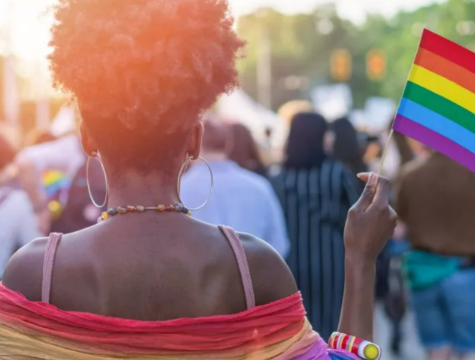LGBTQ+ People are Overrepresented in US Prisons and Jails
Lesbian, gay, & bisexual people are 2x more likely to be arrested as straight people

LGBTQ+ people are overrepresented throughout the criminal legal system, from their high rates of juvenile justice involvement to the long sentences they often receive as adults. While little government data exists about the over-incarceration of this demographic, research is slowly emerging that shows how a multitude of forces push LGBTQ people into jails and prisons at highly disproportionate rates.
- Lesbian, gay, and bisexual people are more than twice as likely to be arrested as straight people — and lesbian and bisexual women, specifically, are more than four times as likely to be arrested as straight women. Scant research exists about the causes of these disparities, but it’s likely that drug law enforcement, laws against sex work, and the criminalization of homelessness are largely to blame.
- 40% of homeless youth are LGBT. Stigma, conflict, or a lack of acceptance at home drive many LGBT youth onto the streets — funneling many of them into the juvenile justice system, where 20% of the population identifies as LGBTQ.
- 35 states have laws against behaviors that can potentially spread HIV. These laws — carryovers from the height of the HIV pandemic — punish people for exposing others to the illness even if no transmission occurs, and can lead to people being criminalized for simply having sex while HIV-positive.
- One in six trans people have been incarcerated at some point, including nearly half of Black trans people. This is compared to about 3% of the total adult U.S. population in 2010 that had ever been in prison, and almost 10% of Black adults.
- 85% of LGBTQ incarcerated people have been put in solitary confinement, that same 2015 survey found. This is often done in the name of “protecting” queer individuals behind bars, despite the well-documented, long-lasting harms of solitary confinement.
Ending mass incarceration and over criminalization must be, and has always been, a central part of the movement for LGBTQ liberation. Pride itself is a celebration resulting from an uprising against police violence and harassment, where queer and trans people dare to asserted their right to live freely.
Because the criminal legal system is a tool for oppressing and controlling Black people, people of color, low-income people of all races, and queer and trans people, a shared goal of a fair criminal justice system lies in reducing the footprint of mass incarceration while investing in the resources our communities need to thrive and to be safe.
Read "How Homophobia Led to the Wrongful Conviction of Four Texas Women" from the Innocence Project.










